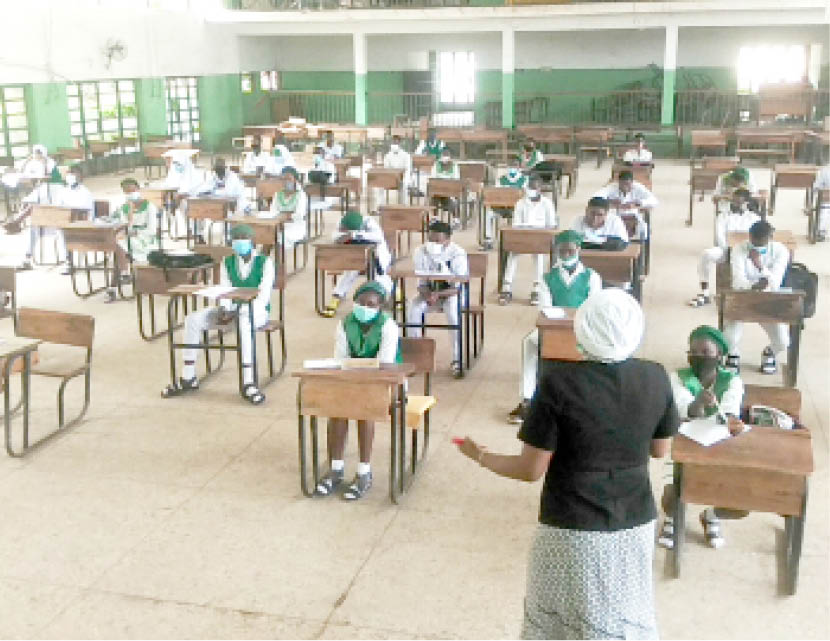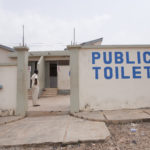As the world awaits scientists across the globe to provide vaccines and drugs to save humanity from the novel Coronavirus (COVID-19) pandemic, it is apparent that the process for a specific, acceptable drug for the virus requires a wide-range of knowledge.
The pandemic no doubt has exposed the extreme fragility of the health system and poor attitude of many nations, especially Africa’s, towards emergency response capacities as well as the undervaluing of research activities in varsities.
Nigeria, however, in the bid to tackle the challenge of the pandemic, has increased the research grant for the Tertiary Education Trust Fund (TETFund) from N5billion to N7.5billion to accommodate academics and private entities to be engaged in meaningful research to tackle the COVID-19 and boost national development.
A compendium containing the ongoing efforts of the Nigerian University System (NUS) to national response to COVID-19, recently launched by the National Universities Commission (NUC) showed that as at June 22, not less than 32 universities were involved in various researches and inventions as part of efforts to mitigate the pandemic.
In spite of the ongoing industrial strike by the academic staff union of Nigerian public universities, the compendium revealed that public and private university lecturers have been actively involved in the process for the discovery of a cure.
The executive secretary of the commission, Prof Abubakar Rasheed, during the launch of the compendium in Abuja on Tuesday, said while the federal government was making serious effort to mitigate the effect of the COVID-19, many universities have been making contributions through research and innovation endeavours to the national effort at containing the devastating pandemic.
He said: “As in many other parts of the world, the pandemic has challenged our knowledge system, which has proved inadequate and insufficiently robust enough to respond to the challenges.”
Only few institutions, he also said, have been able to utilize open and distance learning system to keep students engaged while the pandemic lasted and only few laboratories continued with research and development activities.
Prof Rasheed, who was represented by his deputy, Dr Suleiman Ramon Yusuf, said the few who engaged in research and innovation work have demonstrated the need for a well-funded and robustly organised national research and innovation system to catalyse the national response.
“Furthermore, they demonstrate how the Nigerian University System can be readily effective and relevant to national development if research is valued and adequately funded and the institutions provided with resources to motivate researchers and innovators, including students,” he added.
Contributions of various universities
The compendium showed that as of today, only the Air force Institute of Technology (AFIT) Kaduna has developed certified prototypes of clinical thermometers for COVID-19screening.
It also showed that several institutions have also developed mechanical ventilators and produced prototypes that are currently undergoing clinical tests and standardization.
According to the compendium, the African Centre of Excellence in Genomics of Infectious Diseases (ACEGID) domiciled in Redeemer University is actively collaborating with the University of Cambridge in the development of vaccines and serving as a pioneer testing and screening centre.
Other are ACES in ABU, BUK, UNILAG, UNIBEN, UNIPORT and UNIJOS that also serve as national testing and screening centres.
Also, the ACEs of University of Jos (UNIJOS), Ahmadu Bello University (ABU), and University of Lagos (UNILAG), Obafemi Awolowo University (OAU), Olabisi Onabanjo University (OOU) and Igbinedion University are, in addition to drug research related to herbal and natural products, to lead in the development of herbal and natural remedies.
The institutions with capacity to fabricate gadgets, such as automated dispenser of sanitizer with optic sensor and hand washing devices,have also been advised by NUC to consider mass production and training of local fabricators.
Meanwhile, all the institution shave been involved is the production of face masks with AUST, OAU, and UNILAG having designed and developed medical face masks by means of 3D printing.
Speaking on the contributions, Prof Rasheed said on herbal and natural remedy, “The directive of Mr. President in this regard is acknowledged following the great demonstration of enviable political leadership on this matter by the president of Madagascar.”
He said some of the researches were subject to verification, as most times evidence is required to show that those things were working and to avoid capturing sensational claim that are difficult to verify; there are three phases of trials required for vaccines.
He noted that the commission was already working with universities on the kind of preparation to be put in place before reopening.
“We have sent a template to vice chancellors of all universities requesting them to inform us on the kind of protocols and strategies they are putting in place in their various institutions,” he added.
He said some of the responses have already started coming in and at the end the picture should emerge about the extent to which universities are prepared to reopen for academic activities.

 Join Daily Trust WhatsApp Community For Quick Access To News and Happenings Around You.
Join Daily Trust WhatsApp Community For Quick Access To News and Happenings Around You.

